|
Brunswick Resistance Fighters
Braunschweiger Widerstandskämpfer
The Nazis covered the country of Brunswick with unprecedented terror in spring of 1933. 30 people were killed from February to July 1933. Countless were beaten maimed. Many Social Democrats and Communists were prisoned for years in a concentration camp, some of the victims are buried in this cemetery. |
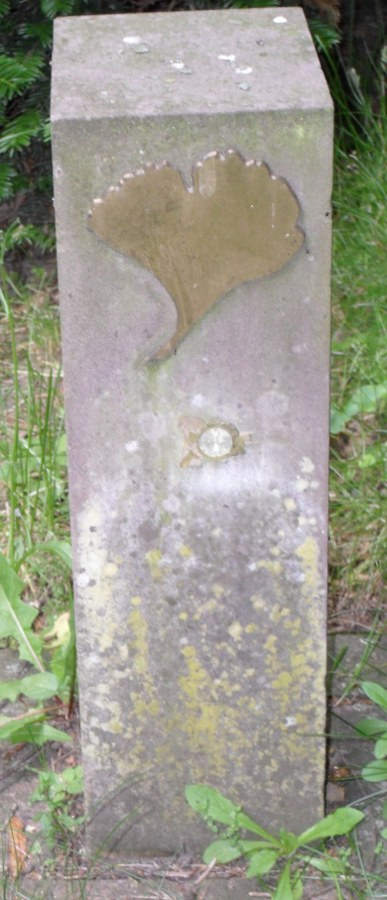
No. 13/14 |
Mathias Theisen
born 30 November 1885 at Essen/Ruhr, died on 10 April 1933 at Brunswick |
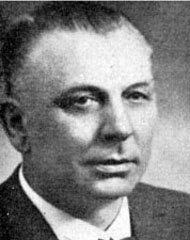 |
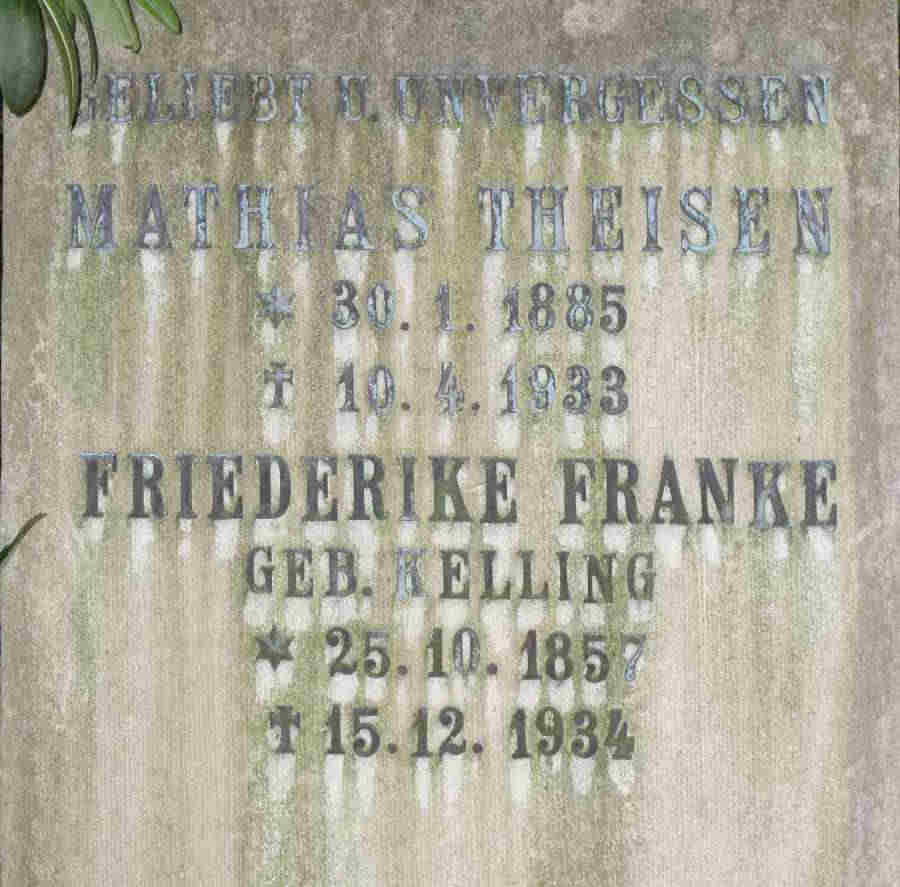 |
Beliebt und unvergessen
Loved and unforgotten
Mathias Theisen
∗ 30. 01. 1885
† 10. 04. 1933
Friederike Franke
geb./nee Kelling
∗ 25. 10. 1857
† 15. 12. 1934 |
Mathias Theisen, a former front-line soldier, lived in the Schubert Street 6. He was the KPD1 deputy in the city council until 1928. Theisen voted in the election of the mayor for the Magdeburg councillor and member of the SPD2 Ernst Böhme and was requested from the Communist Party to resign his mandate in 1929. Theisen resigned and joined the SPD. He was re-elected as a member of the Socialist in 1931. Theisen also was secretary of the Baugewerkbundes, the union of construction workers. Theisen was attacked in his home and taken to the Volksfreundehaus3 end of March 1933. He was brutally abused and tortured. His wife brought the severely injured Theisen into the St. Vincent Hospital, where he died after two weeks in agony from the effects of torture. In the Schuntersiedlung, a quarter of Brunswick, a street was named after him.
1 Communist Party of Germany
2 Social Democratic Party of Germany
3 The "Volksfreundehaus" or "Rotes Schloss" (Red Palace)" was the Brunswick centre of the SPD.
It was stormed by the SS and was used as jail. |
|
August Merges
born 3 March 1870 at Malstatt-Burbach (Saarbrücken), died on 6 March 1945 at Brunswick |
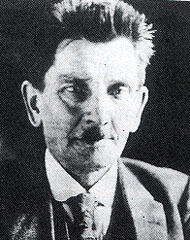 |
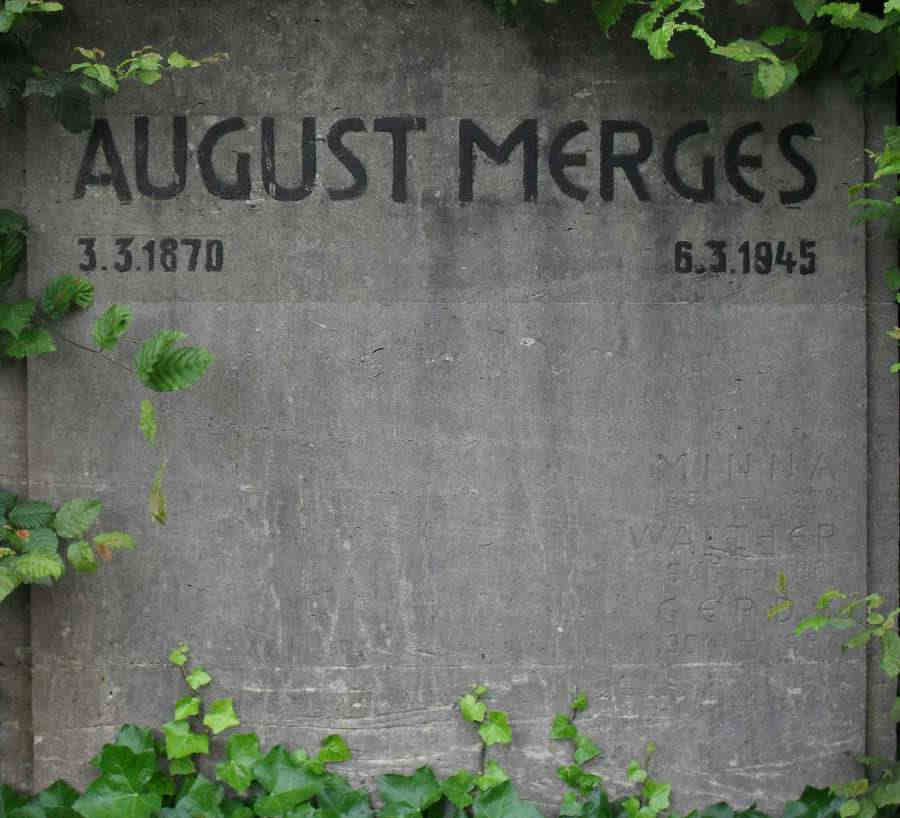 |
August Merges
3. 3. 1870 6. 3. 1945 |
Merges practiced a party-political and union work for a long time in Holzminden before he came as clerk of the "Braunschweiger Volksfreund" (A SPD-newspaper) to Brunswick in 1911. He reinforced the already strong radical wing of the SPD. He founded the "Braunschweiger Revolution Club". A group of around 15 Social Democrats whose target was to start a revolution during the First World War. The political strikes at this time have been greatly influenced by him and he contributed substantially to the fact that Duke Ernst August was caused to abdicate on 08 November 1918. Merges was proclaimed as President of the "Socialist Republic" of Braunschweig at this year and joined the KPD in 1919. He tried to build up a resistance group after 1933 and was repeatedly detained and tortured and died as a result of his injuries in 1945. |
|
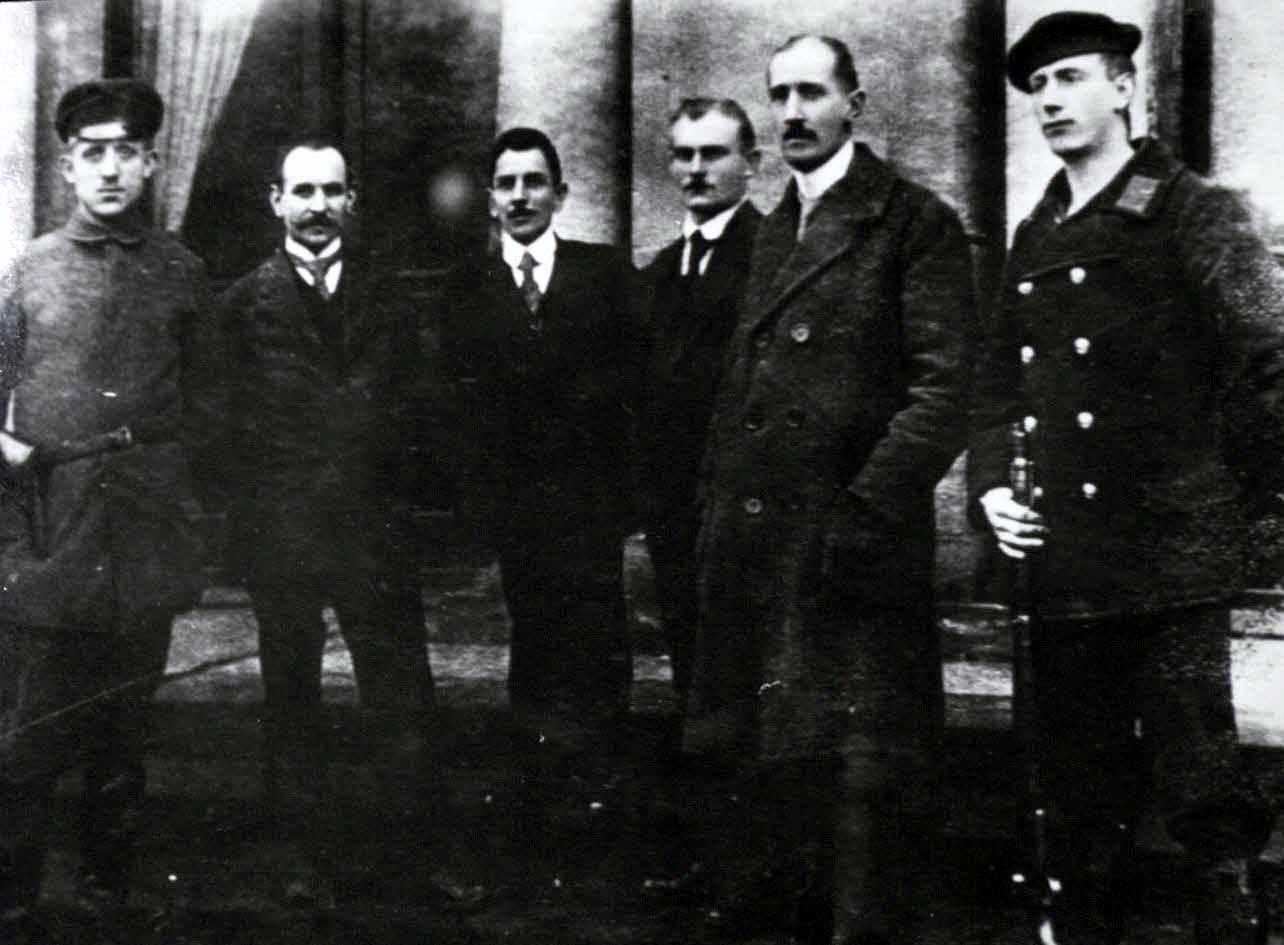 |
November Revolution in Brunswick on 08 November 1918.
The delegation of the Workers and Soldiers Council:
(left to right) Friedrich Schubert, Henry Finke, August Merges, Paul Gmeiner, Hermann Schweiß, and Hermann Meyer. |
Paul Gmeiner
born 15 November 1885 at Afferde, died on 18 April 1944 in the concentration camp Oranienburg |
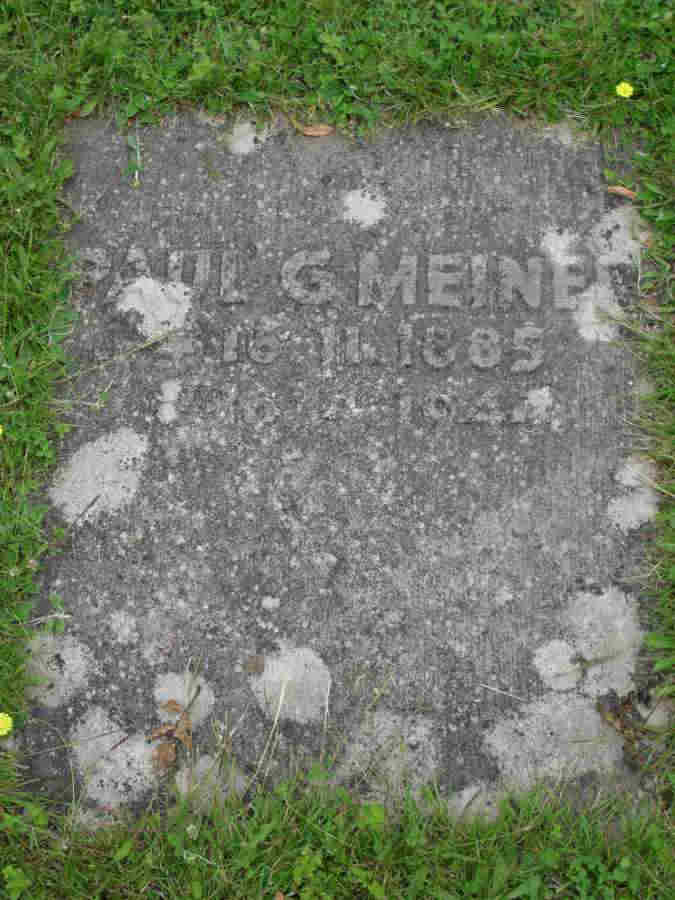 |
Paul Gmeiner
∗ 15. 11. 1885 † 18. 4. 1944 |
The trained lathe operator settled in Brunswick where he joined the SPD in 1912 and the USPD in 1917. He was the Union Secretary of the German Metalworkers' Federation. Gmeiner was among the minority of local party members who supported the federation of the SPD with the KPD to VKPD (United Communist Party of Germany). In the following years he was among the leading Communist Party officials in Brunswick. After he was authorised from the district headquarter of Lower Saxony with the purchase of arms in 1923, he was arrested after the failed uprising in Hamburg in September 1924 and sentenced to a prison term of three years and nine months. Since he was elected in the Brunswick parliament in 1924, it came to a premature dismissal.
He was re-elected in the state elections in 1927 and 1930. Gmeiner was the head of the party executive committee of the Brunswick KPD 1926 - 1929 and headed additionally the local Roter Frontkämpferbund.
After the takeover of the NSDAP in 1933 Gmeiner went underground and organized the resistance activities of the KPD in Brunswick. After he was arrested in the late 1933, he was severely tortured and later held captured in Sachsenhausen concentration camp, where he earned high reputation as block elder in the barrack 53 by his fellows. Paul Gmeiner died in a bomb attack on a subcamp of the concentration camp on April 18, 1944.
|
|
Rudolf Claus
born 29 September 1893 at Gliesmarode/Brunswick, died on 17 December 1935 in Berlin-Plötzensee |
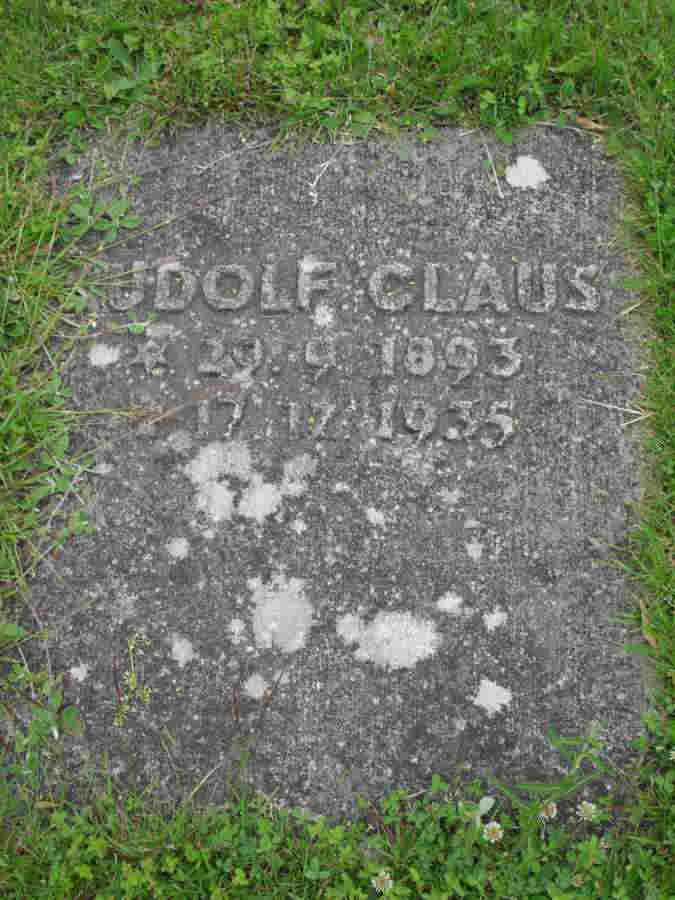 |
Rudolf Claus
∗ 29. 9. 1893 † 17. 12. 1935 |
Rudolf Claus came from a social-democratic parental home. He joined the Socialist Workers' Youth movement in 1909 and took up the profession of a lathe operator. He volunteered for military service in 1914 but became a war opponent during the First World War. He was involved in the November Revolution in Brunswick and in 1919 in the Spartacist uprising attempts to establish a Soviet Republic. In 1920 he became a member of the Communist Party, but shortly after that he joined the KAPD. He was sentenced from a special court in Naumburg to life imprisonment for his participation in the Central German uprising in April 1921. He was released in 1922 as a result of the mass protest movement against this judgment. For political reasons, he was again sentenced in 1924, this time to 8 years in prison. In 1928 he was granted amnesty again. He was then working as a functionary of the Red Aid of Germany (RHD) in Berlin, Halle and Hanover.
During the establishment of the Nazi tyranny was he again arrested in February 1933 and beaten and tortured over a duration of several weeks. After he was released in October 1933 did he immediately join the anti-fascist resistance movement and was a member of the national leadership of the RHD. He was arrested by the Gestapo in June 1934 and sentenced in a staged procedure of Justice on 25 July 1935. Against this "judgment" rose international protest and the Lutetia circle came into being. However, the death sentence was executed in Plötzensee before Christmas in 1935. |
|
August Fuhst
born 14 February 1892 at Brunswick, died on 8 January 1945 in Potsdam |
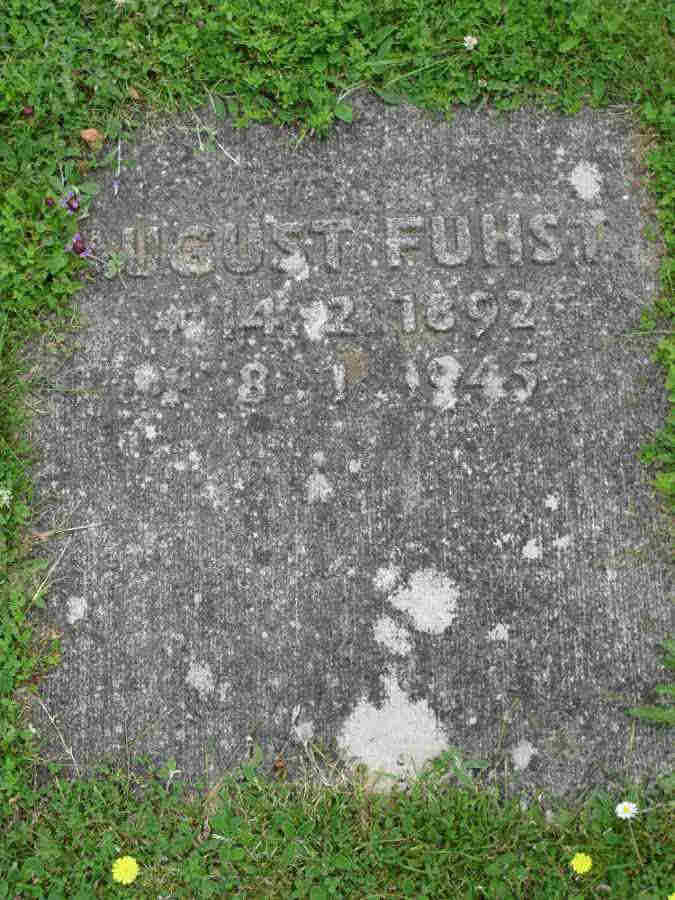 |
August Fuhst
∗ 14. 2. 1892 † 8. 1. 1945 |
The social democratic carter heard "enemy radio" during the war and discussed with his colleagues Hitler's criminal war. He was betrayed and was sentenced to death by a judgment of the People's Court in Berlin for preparation of high treason, aiding the enemy and undermining of military strength. The sentence was carried out in the District Court of Potsdam prison on 8 January 1945. |
|
|
|





